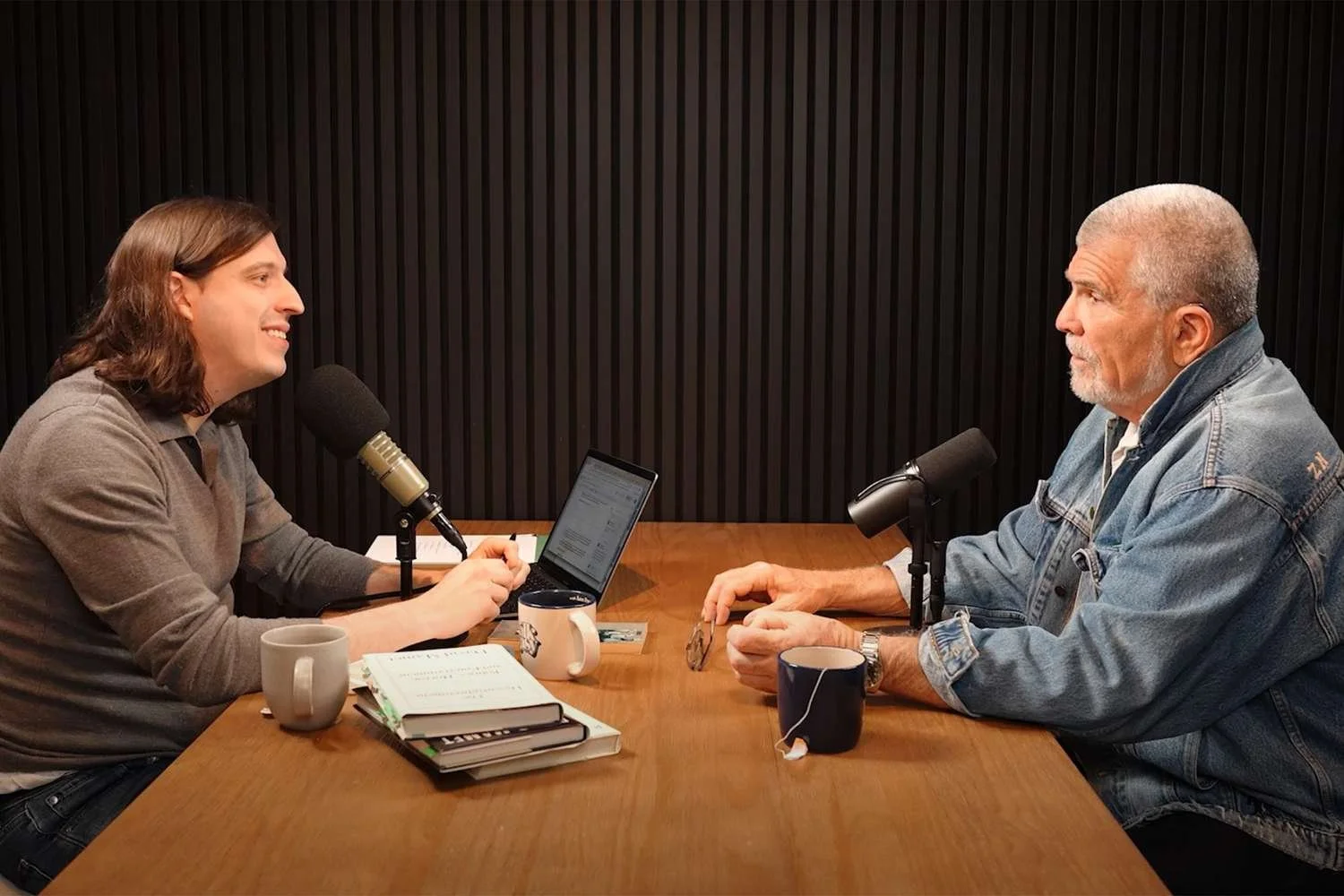David Mamet Doesn’t Want to Talk About It
by Chris Peterson
David Mamet stormed out of a podcast interview last week, and for a man who built his career on explosive dialogue, the irony is rich. What began as a thoughtful conversation on Talk Easy with Sam Fragoso quickly devolved into a masterclass in how to conflate ego with intellect.
Mamet was there to promote his new book Everywhere an Oink Oink—a title that sounds more like a bitter Facebook comment than a work of serious thought. When asked about his shifting political views, support of Donald Trump, and his defense of the January 6 rioters, Mamet lashed out. He called Fragoso biased, brought up antisemitism, and then walked out. His parting line: “You don’t know what the f**k you’re talking about.”
It made headlines. It should have made a point.
This moment wasn’t just about a man exiting a room. It was about what happens when someone who once helped shape the American theatre culture decides he’s above it. It was about how a once-great writer has traded in provocation for petulance. It was about how easily conversation collapses when someone refuses to be challenged.
To be fair, Mamet rooted his reaction in personal history. “I was born twenty months after the end of the Holocaust,” he said, using that generational trauma as both compass and defense.
He sees today’s campus protests not as activism but as a threat. To him, students marching for Palestinian rights are a reflection of old hatred in a new form. And yes, antisemitism on campuses like Columbia is real and deeply concerning. A university task force has confirmed as much. Jewish students are being harassed, and that should outrage everyone.
But many of these students are also grieving. They are watching footage from Gaza that shakes them. They are trying to reconcile horror with hope. They are not perfect, but they are trying. Mamet doesn’t try anymore. He just yells. That is the difference.
But Mamet walking out is not an act of integrity. It is an act of ego. It says you are above being questioned. It says your pain is the only one that counts. It says your relevance matters more than the actual conversation.
That kind of behavior might sell books to people who already agree with you, but it does not move anything forward. And maybe that’s the point. Mamet no longer seems interested in dialogue. He seems interested in dominance. For a man who once wrote dialogue that crackled with intelligence, his actual conversation style is alarmingly thin. When challenged, he does not debate. He detonates.
The most dangerous idea in this discourse is that empathy must pick a side. That you can either condemn antisemitism or feel heartbreak for Palestine. That one group’s suffering erases the legitimacy of another’s. That thinking is cowardly. It is also beneath someone who once built entire plays around moral ambiguity.
Mamet could have wrestled with the complexity. He could have stayed seated and spoken from the heart. Instead, he did what has become his new default—he left, angry and self-satisfied, convinced that being loud is the same as being right.
Sam Fragoso gave Mamet space. He asked clear questions. He never raised his voice. He treated Mamet like a serious thinker. Mamet responded like a man who has spent too long surrounded by people who no longer tell him no.
That is the tragedy here. Not the walkout itself, but the reminder that a man who once gave us Glengarry Glen Ross now gives us tantrums. The same man who taught us that words matter now chooses to run from them.
Mamet once wrote, “Everyone needs money. That’s why they call it money.” At this point, it feels like he needs attention just as badly. Maybe a better line would be this—everyone needs grace. That is why they call it dialogue.
You can watch the entire interview below. The fireworks really begin at the 1 hour mark.
